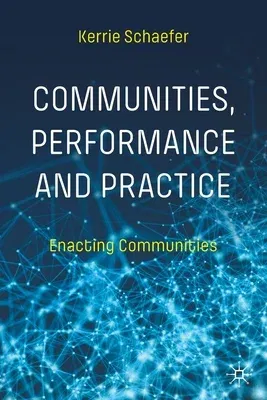Kerrie Schaefer
(Author)Communities, Performance and Practice: Enacting Communities (2022)Paperback - 2022, 7 April 2022

Qty
1
Turbo
Ships in 2 - 3 days
Only 2 left
Free Delivery
Cash on Delivery
15 Days
Free Returns
Secure Checkout

Print Length
201 pages
Language
English
Publisher
Palgrave MacMillan
Date Published
7 Apr 2022
ISBN-10
303095756X
ISBN-13
9783030957568
Description
Product Details
Author:
Book Edition:
2022
Book Format:
Paperback
Country of Origin:
NL
Date Published:
7 April 2022
Dimensions:
23.39 x
15.6 x
1.14 cm
ISBN-10:
303095756X
ISBN-13:
9783030957568
Language:
English
Location:
Cham
Pages:
201
Publisher:
Weight:
303.91 gm